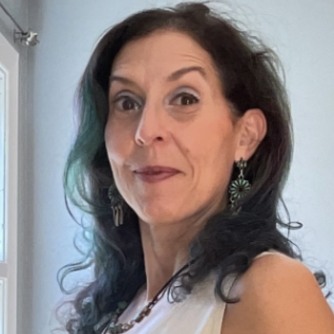The 2026-27 Pembroke Seminar “The Meanings of Merit: Labor, Categories of Difference, and the Creation of Knowledge” will be led by Paja Faudree, associate professor of anthropology and linguistics.

Seminar description:
Debates about the meaning of “merit” have intensified dramatically in recent years. The aggressive push at the national level to dismantle DEI initiatives and return to more “merit-based” decision making has disrupted policies across private and public sectors alike. Presented as an objective criterion for everything from hiring to admissions practices, event programming to publication review to the allocation of funding, merit is claimed as a neutral principle and used to challenge efforts to highlight and redress systemic and historical inequities surrounding the production of knowledge and the recognition of expertise. The contemporary discourse of merit frames the achievements of people whose recognition is marked by any association with diversity and inclusion initiatives as illegitimate. In light of these developments, it is more important than ever to produce and attend to work that insists on examining the ideological assumptions and historical contexts surrounding assertions of merit and fantasies of “excellence.”
This yearlong seminar will consider how ideas about intellectual value and expertise – in other words, myths of merit – are entangled with divisions of labor and categories of difference. While gender will take a central place in our discussions, we will also explore how the creation of knowledge and the authority to claim it are linked to race, ethnicity, class, and sexuality. We will examine how critiques of merit have shaped the work produced in a variety of disciplines and interdisciplinary fields. For example, in literary studies, questions about merit became particularly salient in the context of debates about the canon, which were in turn animated by tensions such as that between “aesthetic” quality and historical or political value. In anthropology, critical engagement with the canon – whether precipitated by the “crisis of representation” or more recent efforts to decolonize the discipline – has involved rethinking various criteria for assessing merit, such as reflexivity, representativeness, and critical distance. These conversations, as well as those in many other disciplines, also involve critically assessing – and subverting – what constitutes the “unmarked subject”: the presumed generic traits that characterize not only objects of study but also those who conduct research. Such questions about who produces knowledge and for whom it is produced are important to engaged scholarship and community-based research taking place in many disciplines, even as they take distinctive form in specific contexts, such as how Indigenous epistemologies and methodologies are theorized in Indigenous Studies. Furthermore, for some fields, critical engagement with ideologies about merit and the institutions through which they are naturalized has long been central and foundational, as in critical university studies and the history and sociology of science / science and technology studies. Our discussions over the course of the year will explore how these and other fields conceptualize value and expertise in the context of larger, synthetic discussions about questions of merit.
The seminar will be organized thematically and will explore a variety of issues and cases that speak to the nexus of labor, expertise, and difference. This could include engaging with both established and more recent work surrounding the underacknowledged role of women in science, such as the “hidden figures” in received intellectual histories and the spouses of “great men” who were systematically rendered invisible. Focusing on decolonizing efforts and citational practices, we will study how ideas of merit have shaped authorship, the political economies of publication regimes, and the relationship between gender and the production of theory. As part of an overall effort to foster self-awareness and reflexivity, we will examine how gender, race, class, and other forms of difference are linked to the labor practices and structures that have shaped and continue to shape the academy as an institution.
Seminar discussions will draw on work from a range of fields in the humanities, social sciences, and sciences. We will engage with an interdisciplinary array of critical scholarship, as well as works of literature, film, visual art, and performance. We welcome applications from not only scholars producing work aimed at academic audiences but also those producing hybrid or public-facing writing or work in visual media, film, sound, music, performance, and other expressive genres. The interdisciplinary composition of the seminar will foster dynamic discussions, encouraging participants to approach questions of merit and knowledge creation through multiple critical lenses and methodologies.
The Pembroke Seminar meets on Wednesdays from 10:00 am – 12:30 pm EST.
For more information contact: Pembroke_Center@brown.edu or phone 401-863-2643.